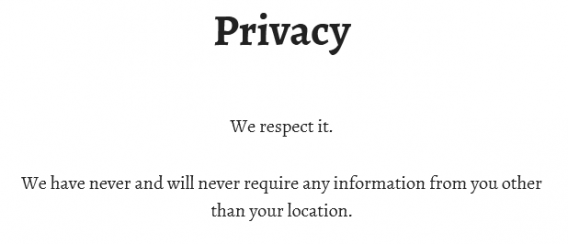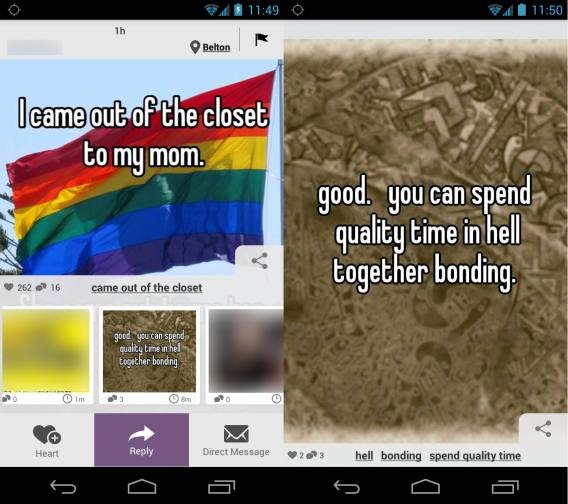It’s interesting to see how quickly kids and teens adopt new technologies. Internet-connected devices now expand beyond personal computers to include smartphones and tablets. All this access to connectivity, however, comes at a cost: children can explore any subject online through a variety of devices, providing a new way to interact online, but also exposing them to more dangers.
It comes in new forms too – instead of just websites, it can be through apps. Kids who grew up with the internet are also becoming smarter, moving away from public spaces to look for more private and anonymous services where their actions aren’t stored. This can be both positive, and negative.
On the one hand, it’s a good thing because it means that people are learning that being public has ramifications. Instead, they’re moving towards apps like SnapChat, Yik Yak, and Whisper. On the other hand, even though they’re leaving the public realm, their use of anonymous online networks doesn’t necessarily means they’re using them in a smart way.
To get more insight on these trends, I spoke with Tony Anscombe, AVG Senior Security Evangelist, and an expert in online child safety.

The dangers of being public or private
According to Anscombe, people under the age of 30 are thinking more about privacy. This demographic is one that has grown up with technology from an earlier age. They want to make comments and conversations, but they want these interactions to be private. In Anscombe’s opinion, people moving away from the public domain can be seen as positive.
I asked Tony where he sees the future of social communication heading, and he says exactly that: a transition from being public to becoming private. An even further transition could be peer-to-peer solutions instead of the use of servers.
But when we look at anonymous or destructive apps like SnapChat, Whisper, and Secret, they may not be as private or anonymous as we think. They have access to our location data, and there is potential for identification using this information.
Anscombe gives an example using Whisper, a company which has publicly stated that it’s looking at advertising as a way to monetize. Advertising through “Sponsored” or “Featured” posts would use targeted advertising, which sets parameters to push ads to a specific group of users. The common use of targeted ads is based on the location of the device.
Targeted ads also use a device’s Unique Device Identifier (UDID) or International Mobile Station Equipment Identity (IMEI) to identify individual users (UDIDs are Apple-specific, while IMEIs are common for GSM devices).
With Whisper using targeted ads, the app would push the device ID to identify the device for that ad. Unfortunately, this can also make the user’s information identifiable, so while you would be getting a relevant ad, your information could be stored on Whisper’s servers. Another recent example is the SnapChat data breach.
As Anscombe states, “What’s online is not always secret.”
Being aware as a parent
How does all this relate to parenting? It’s important that parents know which services their kids are using, and how, to be able to better understand the dangers involved in their kids using them.
Cyber bullying, for example, is a big problem. While bullying used to be limited to face-to-face interaction, online, bullies can come from anywhere. Apps like Whisper have a team of moderators that are able to view posts coming from one source, with the ability to flag accounts as untrusted if too much questionable material is posted. Whisper has also confirmed that it would work with law enforcement agencies to assist in investigations. Parents, however, can’t blindly trust a company to monitor the actions of or protect their children online.
Ascombe gave a great piece of advice to help parents stay in the loop. “Parents need to listen to the apps their kids mention, and try the apps themselves to see if their kids should have access to it.” This doesn’t mean that parents should monitor every single action their kids are doing – it probably wouldn’t be possible – but discussing the rules, conduct, and ramifications of how they act online is the perfect place to start a conversation.

AVG’s PrivacyFix looks like a step in the right direction for families to monitor their kids’ online presence, and the support for Facebook is great because privacy settings on the social network are becoming more difficult to understand.
The transition from public to private
As companies start considering privacy while they are in the early stages of development, privacy options are becoming standard. It’s a company’s responsibility to give users the choice to be private, and it’s not surprising that apps are taking privacy seriously. To take things a step further, it looks like communication will become even more anonymous, where you’ll be able to talk to your friends without the conversation being broadcast through servers.
The biggest question is is this privacy only skin-deep? App developers seem to enjoy putting privacy information in vague terms and aren’t necessarily clear about what they’ll do with you information once they have it.
Companies are going to have be more transparent about what they do with user data, but that trend is still young. Right now, the best you can do is to be aware of what your family is doing online and educate them about the potential results of online actions.


